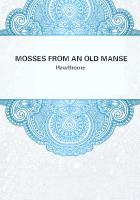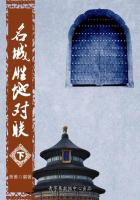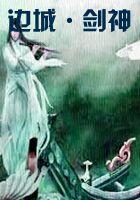In which the Author, very unwillingly, is forced to write a Little History.
While kings and men were thus occupied with England, which governed itself quite alone, and which, it must be said in its praise, had never been so badly governed, a man upon whom God had fixed his eye, and placed his finger, a man predestined to write his name in brilliant letters upon the page of history, was pursuing in the face of the world a work full of mystery and audacity.He went on, and no one knew whither he meant to go, although not only England, but France, and Europe, watched him marching with a firm step and head held high.All that was known of this man we are about to tell.
Monk had just declared himself in favor of the liberty of the Rump Parliament, a parliament which General Lambert, imitating Cromwell, whose lieutenant he had been, had just blocked up so closely, in order to bring it to his will, that no member, during all the blockade, was able to go out, and only one, Peter Wentworth, had been able to get in.
Lambert and Monk -- everything was summed up in these two men; the first representing military despotism, the second pure republicanism.These men were the two sole political representatives of that revolution in which Charles I.had first lost his crown, and afterwards his head.As regarded Lambert, he did not dissemble his views; he sought to establish a military government, and to be himself the head of that government.
Monk, a rigid republican, some said, wished to maintain the Rump Parliament, that visible though degenerated representative of the republic.Monk, artful and ambitious, said others, wished simply to make of this parliament, which he affected to protect, a solid step by which to mount the throne which Cromwell had left empty, but upon which he had never dared to take his seat.
Thus Lambert by persecuting the parliament, and Monk by declaring for it, had mutually proclaimed themselves enemies of each other.Monk and Lambert, therefore, had at first thought of creating an army each for himself: Monk in Scotland, where were the Presbyterians and the royalists, that is to say, the malcontents; Lambert in London, where was found, as is always the case, the strongest opposition to the existing power which it had beneath its eyes.
Monk had pacified Scotland, he had there formed for himself an army, and found an asylum.The one watched the other.
Monk knew that the day was not yet come, the day marked by the Lord for a great change; his sword, therefore, appeared glued to the sheath.Inexpugnable, in his wild and mountainous Scotland, an absolute general, king of an army of eleven thousand old soldiers, whom he had more than once led on to victory; as well informed, nay, even better, of the affairs of London, than Lambert, who held garrison in the city, -- such was the position of Monk, when, at a hundred leagues from London, he declared himself for the parliament.Lambert, on the contrary, as we have said, lived in the capital.That was the center of all his operations, and he there collected around him all his friends, and all the people of the lower class, eternally inclined to cherish the enemies of constituted power.
It was then in London that Lambert learnt the support that, from the frontiers of Scotland, Monk lent to the parliament.
He judged there was no time to be lost, and that the Tweed was not so far distant from the Thames that an army could not march from one river to the other, particularly when it was well commanded.He knew, besides, that as fast as the soldiers of Monk penetrated into England, they would form on their route that ball of snow, the emblem of the globe of fortune, which is for the ambitious nothing but a step growing unceasingly higher to conduct him to his object.He got together, therefore, his army, formidable at the same time for its composition and its numbers, and hastened to meet Monk, who, on his part, like a prudent navigator sailing amidst rocks, advanced by very short marches, listening to the reports and scenting the air which came from London.
The two armies came in sight of each other near Newcastle, Lambert, arriving first, encamped in the city itself.Monk, always circumspect, stopped where he was, and placed his general quarters at Coldstream, on the Tweed.The sight of Lambert spread joy through Monk's army, whilst, on the contrary, the sight of Monk threw disorder into Lambert's army.It might have been thought that these intrepid warriors, who had made such a noise in the streets of London, had set out with the hopes of meeting no one, and that now seeing that they had met an army, and that that army hoisted before them not only a standard, but still further, a cause and a principle, -- it might have been believed, we say, that these intrepid warriors had begun to reflect, that they were less good republicans than the soldiers of Monk, since the latter supported the parliament;whilst Lambert supported nothing, not even himself.
As to Monk, if he had had to reflect, or if he did reflect, it must have been after a sad fashion, for history relates -- and that modest dame, it is well known, never lies --history relates, that the day of his arrival at Coldstream search was made in vain throughout the place for a single sheep.
If Monk had commanded an English army, that was enough to have brought about a general desertion.But it is not with the Scotch as it is with the English, to whom that fluid flesh which is called blood is a paramount necessity; the Scotch, a poor and sober race, live upon a little barley crushed between two stones, diluted with the water of the fountain, and cooked upon another stone, heated.
The Scotch, their distribution of barley being made, cared very little whether there was or was not any meat in Coldstream.Monk, little accustomed to barley-cakes, was hungry, and his staff, at least as hungry as himself, looked with anxiety right and left, to know what was being prepared for supper.















